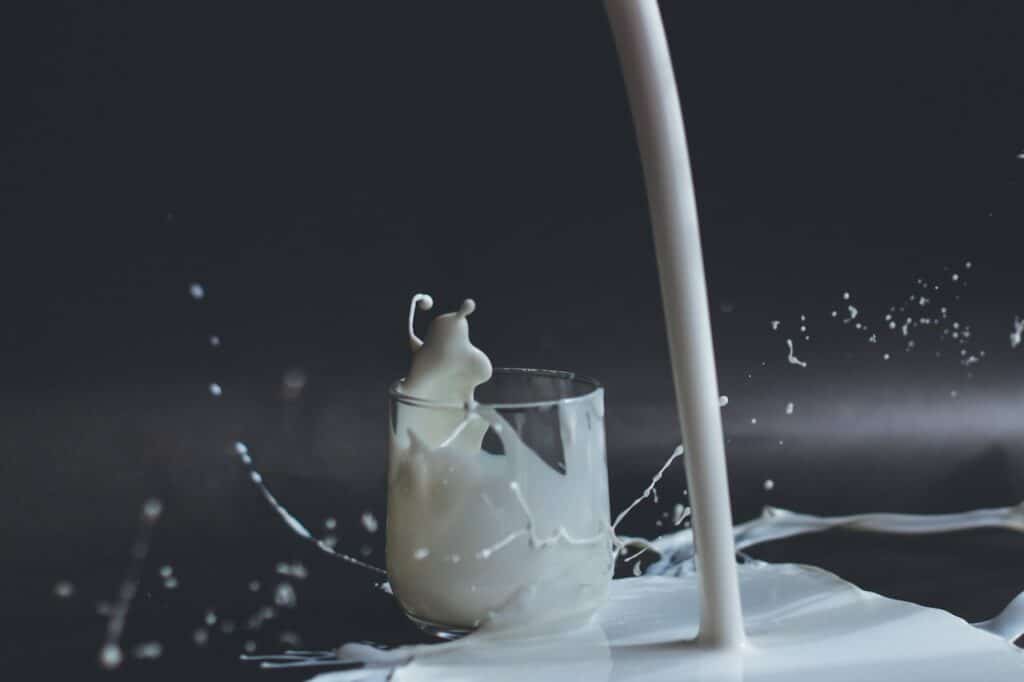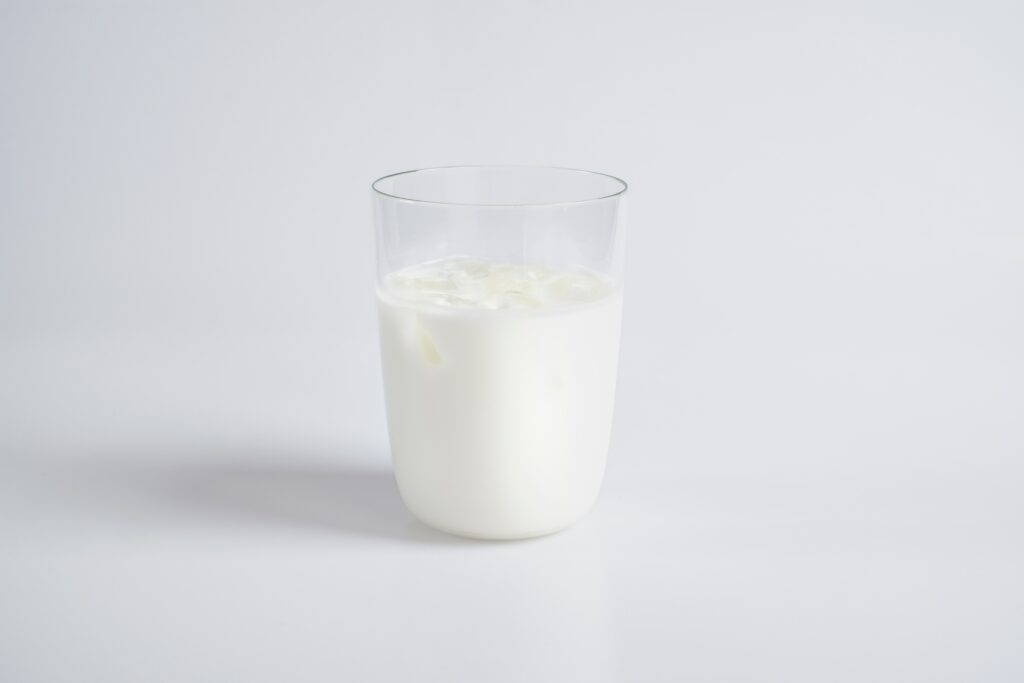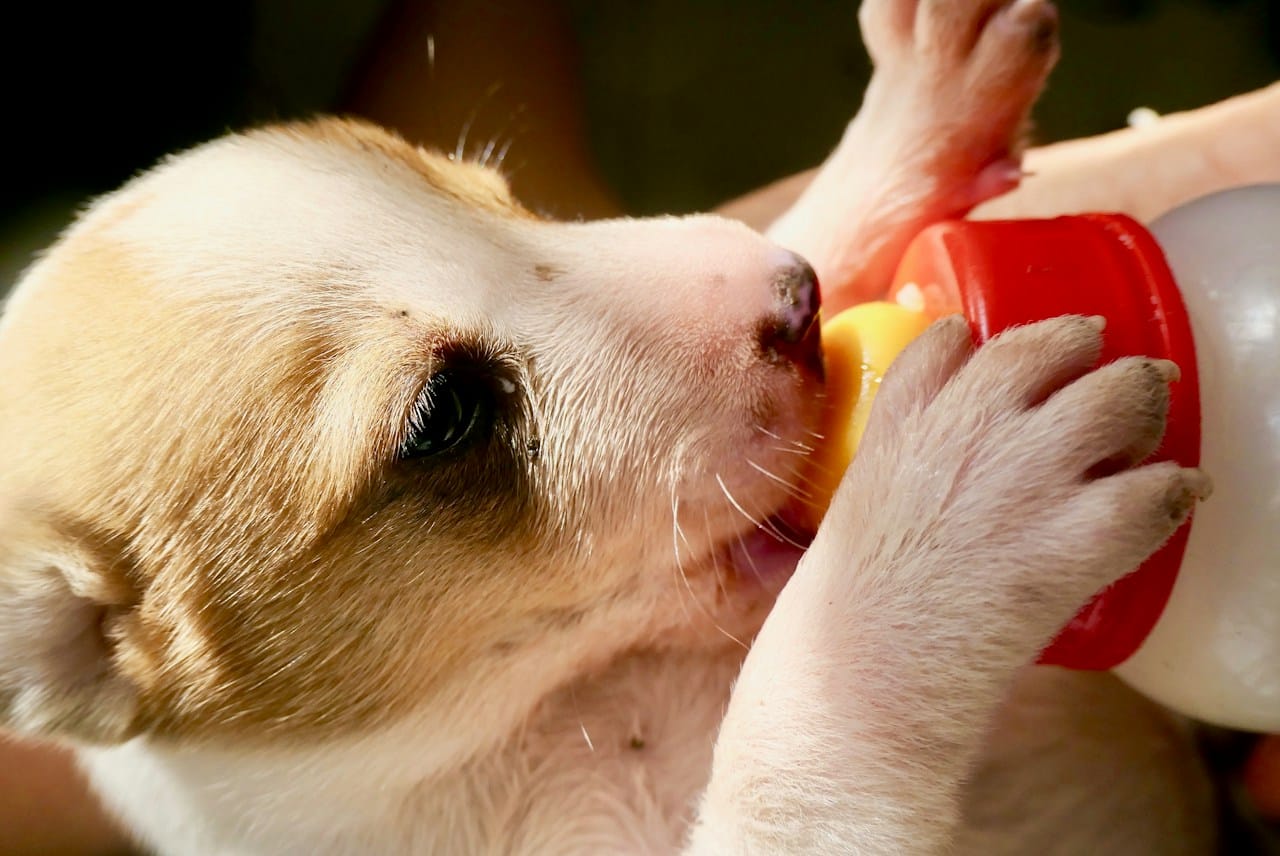When looking for information on whether can dogs drink milk, it’s fascinating to see how many contradictory opinions there are. Some say milk is not only safe to drink, but also recommended, while others say it is not.
Table of Contents

What is milk?
Milk is a liquid secreted by the mammary glands of mammals to feed their young. Lactose, a disaccharide formed by the union of two monosaccharides, glucose, and galactose, accounts for a large portion of its energy content.
Milk excludes beverages derived from legumes and cereals such as soybeans, oats, and almonds.
Milk is a fat and water mixture that does not precipitate and remains stable over time. This stability is achieved by proteins (caseins) with one end that interacts with fat and the other with water.
So, in every case, we have:
- Water.
- Carbohydrates
- Grease.
- Proteins
Each species’ milk has a different composition because the offspring have different needs depending on the species. However, the milk of Bos taurus females, or cow’s milk as it is more commonly known, is more widely consumed in human consumption.
The specific composition of this in its “whole” form after pasteurization or sterilization is:
- 88.4% water.
- 3.8% fat.
- 3.06% protein.
- 4.7% carbohydrates.
Even though the nutrient percentages appear to be small when the water is removed, we have:
- 32.75% fat.
- 26.37% protein.
- 40.51% carbohydrates.
Proteins also have a high biological value. It is high in vitamins A, D, E, B, and C.
It is a well-known mineral source, particularly potassium and calcium. When compared to other foods with higher calcium content than milk, the latter is also absorbed remarkably, because it is not the amount of nutrient that matters, but when it is absorbed.
Zinc, iodine, iron, phosphorus, sodium, and magnesium are also present.

What problems can milk cause in dogs?
Lactose intolerance is caused by a lack of an enzyme, specifically lactase (which divides lactose into galactose and glucose so that it can be absorbed).
The small intestine produces this enzyme during lactation and then stops producing it; however, due to genetic mutations, many people and animals continue to produce it.
Lactase is not absorbed in the intestine and instead reaches the large intestine, where certain bacteria can exploit it and multiply above their normal concentration, causing diarrhea, flatulence, and discomfort. Furthermore, lactose transports a large amount of water and other dissolved nutrients, influencing their absorption.
This is the most common problem caused by milk consumption, and it does not always go away when consumption is discontinued, but it is not the only one.
Dairy allergy: It differs from the previous one in that its symptoms are triggered by an immune system response, whereas the previous one does not. The symptoms are sometimes similar, but there is also itching skin redness, and otitis. Respiratory symptoms are rarer. Dairy products are common allergens, despite being a less common problem than the previous one.
Unlike sugar intolerance, which is caused by sugar, the symptoms in this case are caused by milk proteins, and the symptoms disappear when the food is removed.
Can dogs drink milk?

The dog will determine the answer. The most straightforward way to find out is to try this food while being aware of the potential health risks.
Of course, we do not recommend it, nor do we recommend that an animal’s diet be based solely on this food, no matter how nutritious it may be.
Can dogs drink milk from cows?
This is a completely reasonable doubt given the content that we have created. We will explain why this is the case.
Milk from various species is not the same. The compositions of bitch milk and cow’s milk are compared below:
| Cow milk | Bitch milk |
| 88.4% water | 78.6% water |
| 3.8% fat | 9% fat |
| 3.06% protein. | 8% protein |
| 4.7% carbohydrates | 3.1% carbohydrates |
Cows milk differs from what a puppy gets from its mother in composition, and the concentration of lactose is higher, so it won’t be able to digest it all, resulting in the previously mentioned issues.
It is a particularly vulnerable stage in the lives of these animals, and diarrhea can endanger not only their growth but also their survival.
What is the best dog milk?
Lactose-free milk is an option if you still want to try it. Because it is simply treated with lactase, its nutritional value is comparable to that of regular milk. It maintains the composition of other milk (but also, the amount of lactose it contains is higher than what it could digest).
There is no set amount of fat in milk that is recommended (whole, semi-skimmed, or skimmed). They are less likely to cause problems in a healthy dog if given in small amounts.
There is no one better suited for the commercial house than another. Under no circumstances should a dog be given raw milk.
Can a dog eat dairy?
The dairy determines the answer. Lactose is the fuel that bacteria require, so the more it is fermented, the less lactose it contains.
In theory, they do not have to be made of lactose-free milk; they will always be safer, but this does not compensate for the higher cost of these products.
Plain yogurt and aged or semi-aged cheese are generally safe. Small increasing doses should always be administered to see the effect on our animal, and the final amount should not cause any symptoms.
Cottage cheese is another interesting product because it contains little lactose. Dairy allergy occurs in all products derived from milk, so a dog with this condition will be unable to consume any dairy.
Can dogs drink soy milk?
The simple answer is yes. Soy products in general are non-toxic to dogs and have a few advantages. To be honest, many commercial dog foods on the market contain soy.
So, yes. You can give your dogs small amounts of soy milk as a treat now and then. However, keep in mind that this may not apply to everyone. After all, the nutritional requirements of dogs differ.
The consumption of soy milk has benefits and drawbacks, just like any other food. Yes, its nutritional value is adequate, and drinking it may provide some health benefits to your dogs. However, food containing soy-based ingredients is not a requirement in a dog’s diet, and giving your dog soy milk has risks.
What milk can dogs drink? Can dogs drink almond milk?
We talked about milk in general. But there are many different types — from the famous cow’s milk to goat’s, and even non-dairy versions like almond and rice milk.
You can easily get lost in this vast sea of milk information. So which ones are safe for your puppy, and which should you avoid?
How much milk can dogs drink?
Not only does lactose intolerance cause stomach upset in dogs, but the high levels of fat found in whole milk and high-fat dairy products can cause diarrhea and vomiting in some dogs. Therefore, regardless of whether your dog is lactose intolerant, they should never drink a large amount of milk. If your dog grabs a piece of cheese or licks some milk from your empty cereal bowl, it shouldn’t be a problem, but that should be the limit.
Depending on the size of your dog, the acceptable amount of milk intake will vary, but in general, it should not be added to their diet more than 1-2 times a week. If your dog consumes a lot of milk, pay attention to stomach activity and bathing for the next 12-16 hours, until the milk is digested.
Can dogs drink milk instead of water?
Unless your dog is sick, you may notice that he or she will drink or eat anything placed in front of them. What beverages, however, are safe for a dog to consume? Nonetheless, you should avoid taking water away from your dog. Every day, your dog’s water bowl should be filled.
While there are other options for your dogs to drink, water is the only one that is completely safe and healthy for them. You can give dogs a more enjoyable drink, such as beef broth, but it should never be used in place of water.
Can dogs drink milk for an upset stomach?
Ice cream, milk, and cheese should all be avoided when your stomach is upset. They are difficult for your body to digest in part due to their high-fat content. Sometimes plain, nonfat yogurt may be acceptable, but try a small amount first.
Can dogs drink milk every day?
Your dog receives all the milk it needs from its mother while still a puppy and doesn’t require any more.
Additionally, introducing this novel milk to its delicate digestive system is not a good idea.


